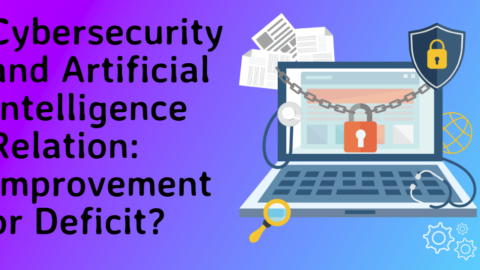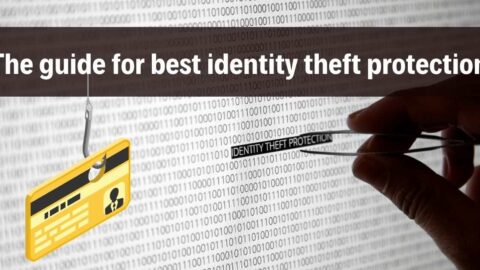Digital World and its Danger to Personal Privacy
Every internet user, from rare visitors to complete enthusiasts, is aware of constant improvements in always-changing features . These are improvements in information technologies. But the biggest tech companies get competitive in a vast market full of untapped possibilities. And giants start to dictate the rules and disregard user personal internet privacy and humane technology. While we receive more new gadgets, features, better software, and improvements in functionality, for some, the cost of lost privacy tools and anonymity outweighs the aggressive strive for progress. To make matters worse, no one can imagine a life in the XXI century without computers, tablets, and smartphones. Becuase they connect us to the vast network of devices communicating in the digital world. What are the possible danger to personal privacy?
Table of Contents
Even as our internet privacy is aggressively violated, no one can lead a productive, profitable life without using addictive gadgets that provide a gateway to information technologies.
The lightning-fast rate at which technology businesses create new products often gives rise to new cultural and ethical concerns. So, privacy advocates have frequently taken issue with Google’s Street View. They questioned whether the logistical and commercial benefits of making every property on every street visible on the web are worth the sacrifice of the individual’s right to privacy. These individuals question whether or not the benefits of making every property on every street visible on the web are worth it.
How Digital World Pose Danger to Personal Privacy?
Today, even the most casual internet user cannot live without efficient data transmission, connection, and vast amounts of digital entertainment. Yet, everyone is subject to private data collection and exploitation. Everything we say, post, write, or do on the internet can be scraped or hacked. These include messages on social media platforms to searched information on search engines. Every bit of information transmitted into the digital world is stripped of its privacy.
In this article, we want to educate our readers about the lack of privacy tools on the internet. While it is impossible to achieve anonymity for yourself and posted information, we can discuss internet personal privacy tools that may help minimize exposure. Proxy servers are a great start. As they are simple but effective and flexible tools that help users hide their IP addresses that assign a unique identity on the internet. Privacy becomes an even greater concern as companies perform tasks online. To avoid detection by competitors and tech giants, we recommend reaching out to business-oriented proxy providers to learn about proxy prices.
Residential plans offer the best intermediary servers for data-sensitive tasks. Still, a casual user should look for cheap proxy prices to test the service with the help of a lawful provider. Still, even proxy servers do not ensure anonymity on the web. Using public servers only puts your private data at greater risk, at the mercy of hackers and cybercriminals. To avoid these problems, let’s discuss the unfair landscape of the digital world. And how it undermines the user’s privacy, and what you can do to reduce the unfortunate exposure.
Changing your IP only goes so far
As we connect to web servers in pursuit of information and entertainment on the internet, an established connection follows the HTTP protocol, which contains our unique IP address. As we access the digital world, this network identity has a portion of personal privacy information attached to it. For instance, your approximate physical location and information about the internet service provider (ISP). You may feel like nobody is aware of your actions on the web. However, with every connection, big websites use localization to redirect you to a different version of a page that displays information and advertisements based on your location.
As mentioned before, proxy servers are the most flexible tools that help us hide an IP address. And they generate a different access point to the web to change your browsing experience. With a good provider, you will have access to thousands of addresses. Hence, choosing some unique IPs will help you connect to websites that otherwise would not be available in your country. Some use rotating proxies to change addresses for automated data extraction tasks. In contrast, others create concurrent connections with unique addresses to manipulate social media accounts or use different IPs for specific connections. Still, even with a changed network identity, there are plenty of other ways your device and actions on the web leave fingerprints. And it is possible trace them back to your identity.
Understanding fingerprinting technologies
Device fingerprinting helps websites recognize your device by determining which operating system (OS) and browser have been used to establish a connection. Fingerprinting technologies are often justified with the desire to offer visitors the best. And visually pleasing interaction with the page and its information. However, while convenient, this data only offers knowledge to track visitors and their actions on the page and other websites about with the server owner.
Even when all personal privacy tools are active, the days of private internet are gone. Because there are with an abundance of hardware and software that depend on private user information. And only uneducated web surfers are gullible enough to expect it. Even under pressure from governments and humane technology enthusiasts, Tech companies will never sacrifice the profitable collection of information. And the vision of new, convenient, revolutionary inventions to ensure the anonymity of an average internet user. Every connection to the internet undermines our privacy. And the only way to stay free and avoid tracking is to bid farewell to information technologies altogether.

Valencina has more than 25 years of experience as an IT consultant with a great focus on enterprise application UI/UX. She has experience working across multiple industries, acting both in an advisory role, as well as hands on in the technical build of solutions. Valencina is the co-founder and COO of Nitera Training Services.










